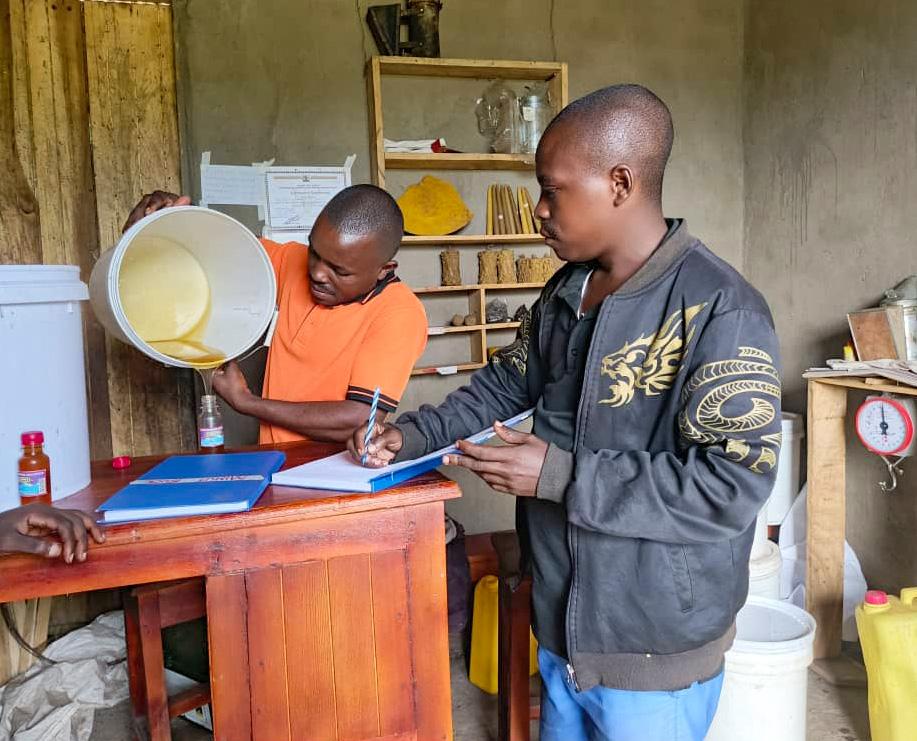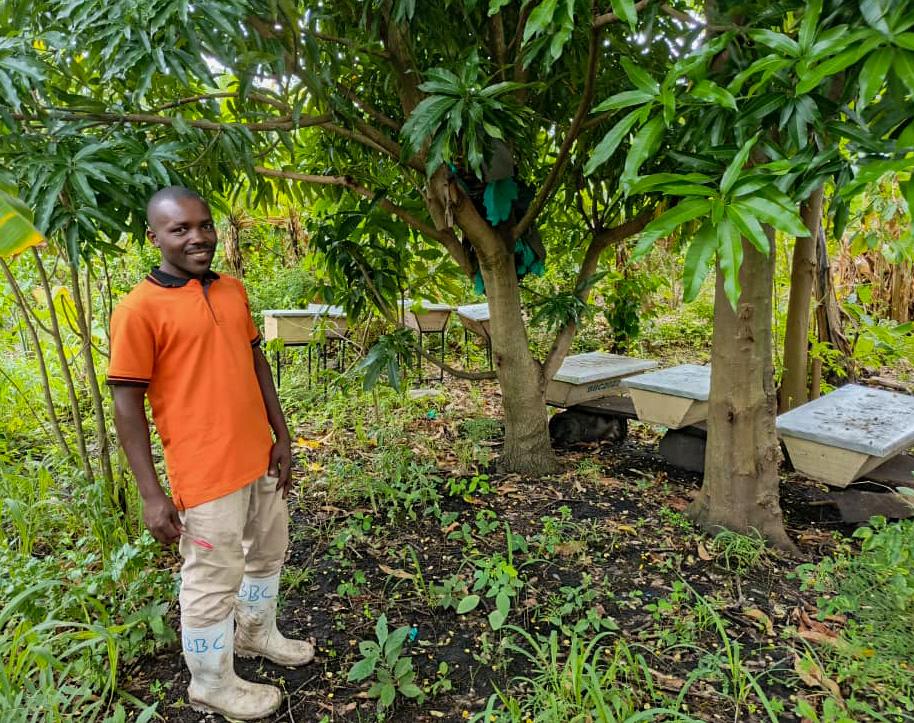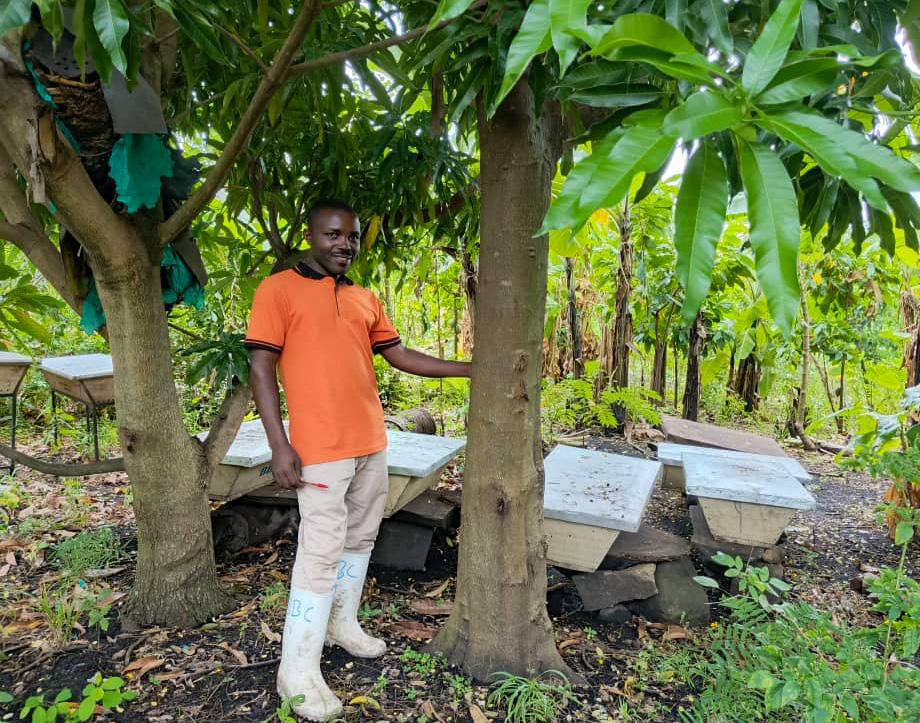How beekeepers in Uganda are saving for health
In the rural district of Ntoroko, Uganda, groups of young beekeepers
found an unexpected way to protect their health—by saving through honey
production. What began as a small business in 2017 has grown into a lifeline
for medical emergencies.
The Nombe
Beekeepers Group, in Nombe sub-county, Ntoroko district, was started after
Mutalinga George, the group chairperson, completed a 3 months training in
beekeeping from Bunyangabu Beekeepers Cooperative. “After completing the
training, I trained 6 more youth in beekeeping to start the group together”,
said George. Now with 28 members (13 men and 15 women), the group has trained
150 youth in beekeeping. They supply honey, wax, and propolis while managing
111 beehives to support the growing local market.
Inspired by the
training conducted by Kyakima Hopeman, a Village Health Team member trained by
Enabel, 12 members of the group took the first step toward financial security
by saving money specifically for medical emergencies. Today, the number of
group members saving for health has grown to 22 members (13 women and 9 men),
who are now actively contributing to the health emergency fund every week.
Each member
deposits 1,000 UGX into the fund every week, an amount that, while modest, has
already accumulated to an impressive 808,000 UGX. “Last month, one member was
able to access 200,000 UGX for urgent medical care, and successfully repaid the
loan”, said George, the group chairperson.
With government
health centres often facing drug shortages, overcrowding at health centers, and
high costs of referrals, the members of Nombe Beekeepers Savings and Loans
Association can afford to access facilities timely and buy medicine in case
they can not find them at the public facilities. Mutalinga George, the group’s
chairperson, said that saving for health shields members from financial shocks
and ensures they get the care they need when they are sick.
To boost their
sources of income, the group plans to expand their income-generating activities
beyond beekeeping and savings, venturing into poultry farming and brickmaking.
They intend to grow their health savings fund and provide even more support for
their members. Additionally, they aim to double their weekly health savings
contribution from 1,000 UGX to 2,000 UGX per member.
At their next
annual general meeting, they plan to make saving for health a compulsory weekly
contribution, ensuring that every current and future member participates in
saving for health.
Latest news from this project
No news



